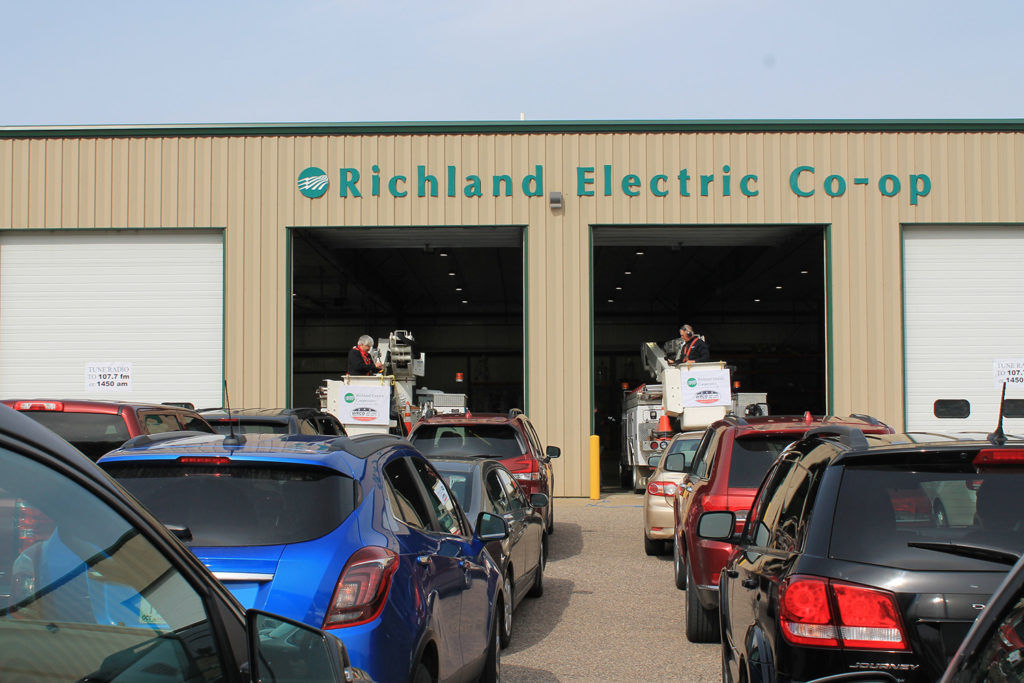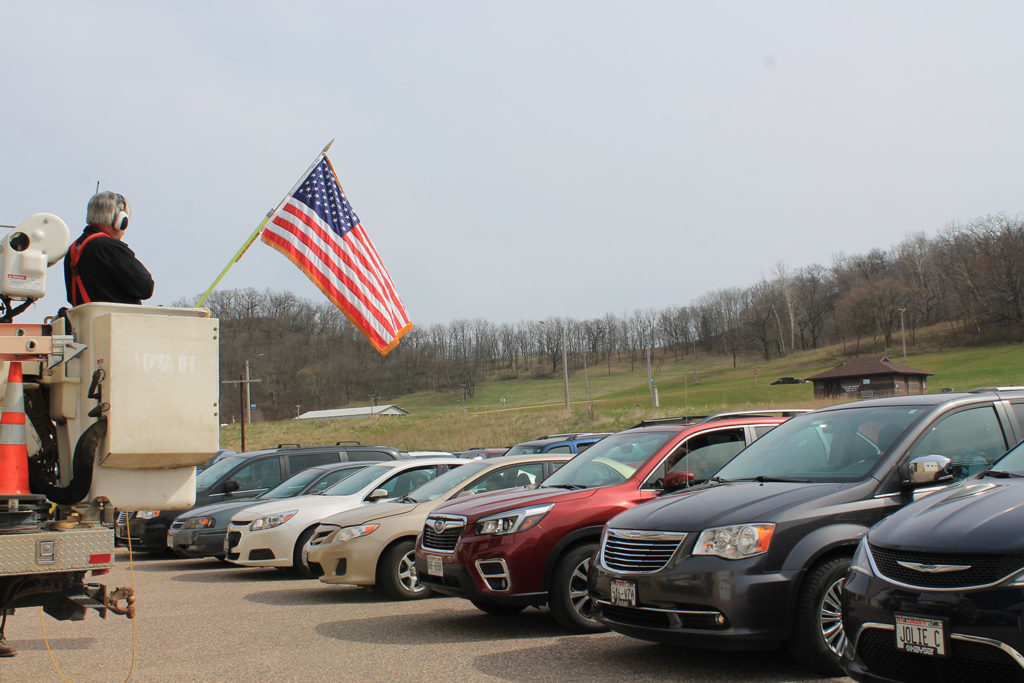
RICHLAND CENTER, Wisconsin—Richland Electric Cooperative drew inspiration from drive-in movie theaters to come up with a creative way to host its annual meeting amid the coronavirus pandemic.
Restricted by the state’s social distancing orders, the co-op devised the alternative format to keep consumer-members safe while still holding the annual meeting by the end of April in accordance with bylaws. Instead of the usual high school auditorium, the co-op staged the meeting in the spacious parking lot of its service center, where equipment and vehicles are typically stored. Members were invited to park and stay in their cars or trucks for the entire meeting.
“We were confident that we’d get 50 members to reach the quorum, but we didn’t know how many more,” said Trevor Clark, director of outreach services at the Richland Center-based co-op.
As it turned out, Clark didn’t need to worry. About 130 registered members came to the April 25 meeting, staying in their vehicles with their windows closed while listening to the proceedings on their car radios. Voting was done by horn honks—short and quick for “Aye;” long and loud for “Nay.” The meeting lasted about 30 minutes.
“It was pretty strange to have everyone in their cars and not have the chance to sit and chat with them,” said Amy Martin, the co-op’s chief financial officer. “But it was so nice to still see everyone’s smiling faces through the windows. You can just tell everyone is happy to be here and together.”
CEO Shannon Clark and Board President Calvin Sebranek, both in personal protective equipment, led the meeting in separate 6-foot-high bucket trucks.
The annual meeting provides some consistency in this tight-knit community, said CEO Clark, adding that the event had always gone on, even during World War II and natural disasters.

“I’ve always said the annual meeting is as much social as it is business,” he said. “We should not hold a meeting to simply ‘get the meeting over and done with.’ It should always be about engaging as many members as is reasonably possible.”
Changes approved by directors several years ago for more member-friendly meetings helped planners of the drive-up event. Ballots are now mail-in and meetings, which once clocked in at four hours, are 90 minutes at most. Meeting materials are sent to members ahead of time.
“We are going to do our best to make this as simple as possible. We don’t want to keep our members out in public any longer than they have to be,” Trevor Clark said before the meeting.
Organizers pored over the logistics in the days leading up to the meeting, paying extra attention to member safety. To minimize personal contact at check-in, members drove through a bucket truck garage and held registration bar codes up to their car windows for scanning.
Employees interacting with members wore face masks and gloves. Lineworkers in bright yellow vests directed drivers to the parking lot, where members parked in wide, tidy rows. At the end of the meeting, line crews directed drivers toward the exit. Local police were present to ensure safety.
To provide a little extra pocket money for members facing economic hardship during the pandemic, Richland EC gave $25 credits on their electric bills, which at least one member returned as a show of support. The co-op will send any returned credits to a local charity.
“The co-op has always met the needs of its members,” said member Ken Thiede, noting that the co-op’s history of conscientiousness made him “not at all” concerned for his safety. “The (bill credit) is just one way of showing that. There’s no doubt times are tough for a lot of people and local businesses, and that $25 is really going to help some people during this time.”
Alexis Dunnum is a communications coordinator and Victoria A. Rocha is a staff writer at NRECA.